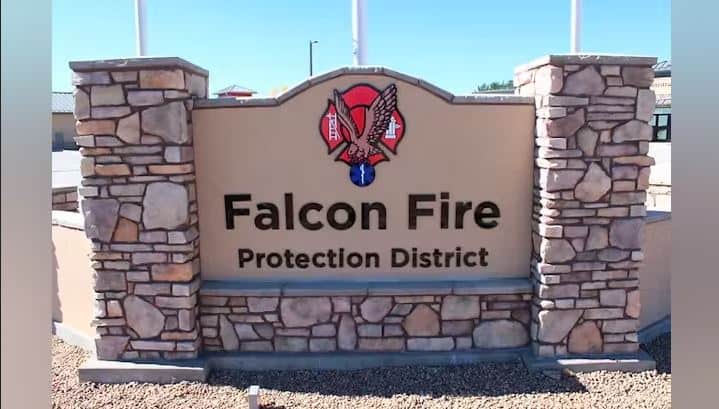With a handful of people in attendance, the Falcon Fire Protection District held its second town hall meeting July 13 to address budget issues and get feedback from the community. Budget issuesUnlike other districts, the FFPD receives the majority of its funding through property taxes, not sales taxes. Currently, the FFPD receives between 5 and 8 percent of property taxes levied on properties in the district. The FFPD receives about $130 a year on a house valued at $250,000. However, the assessed value of the properties in Falcon has gone down about 7 percent, which means a decline in property taxes and budget woes for the fire department.The FFPD also receives funding from grants. In 2007, the district was awarded a Staffing for Adequate Fire Emergency Response grant, which ends Feb. 4, 2012. The FFPD will lose about $150,000 a year from the grant, which partially funds the salary of six employees.Banning Lewis Ranch also provided property tax revenues in the past, but they elected exclusion from the district, meaning another loss of between $45,000 and $50,000 per year to the district.”We need to make up about a $300,000 loss in revenue,” said Trent Harwig, fire chief.Harwig said the only options are cutting expenditures by reducing employees and/or reducing FFPD property; or modifying the mill levy. “There’s no sense in putting it off,” he said. “It’s going to happen. But we want to know, what does the public want to see? We’ll do the most and best with what we have.”Cutting expendituresThe district has already cut the fleet replacement portion of their budget, which Harwig said will reduce the life of the fleet.Reducing staff is one option, Harwig said. Sixty-eight percent of the budget is allotted for employee pay.The FFPD also leases Fire Station 1 for $200,000 a year. Harwig said they could stop making the payment on that facility and let the bank take the property, which would significantly affect response time to calls covered by that station.The FFPD has the third highest call volume out of the 18 districts so reducing property or employees with have an effect on call response time, Harwig said.Mill levyThe FFPD’s current mill levy is 5.712, the third lowest of all districts. With a 2 percent increase, Harwig estimated the district should be able to maintain itself for 10 years at a 3 percent growth rate. One audience member asked if the board was comfortable asking for a mill levy increase. “No, the board is not comfortable with a mill levy increase. But we’re also not comfortable laying off firefighters,” said Kelly Starkman, vice president of the board. “We’re stuck between the proverbial rock and the proverbial hard place.””This plan is not a growth plan,” Harwig said. “I want to sustain what we currently have at least. We don’t want to lose what we have, but we can if that’s what people are comfortable with.”One attendee voiced concern that if a mill levy increase is successful and the economy gets a boost, what happens to the extra revenue.”If the FFPD asks voters for a 2.5 mill increase and they get it, that’s the maximum they could collect. They don’t have to collect that amount if the growth rate goes up,” Harwig said.Property taxes in the district have dropped about $100 to $150 per year per house, he said. The mill levy increase would cost about $30 per year. Property owners would still be ahead between $70 and $120.





